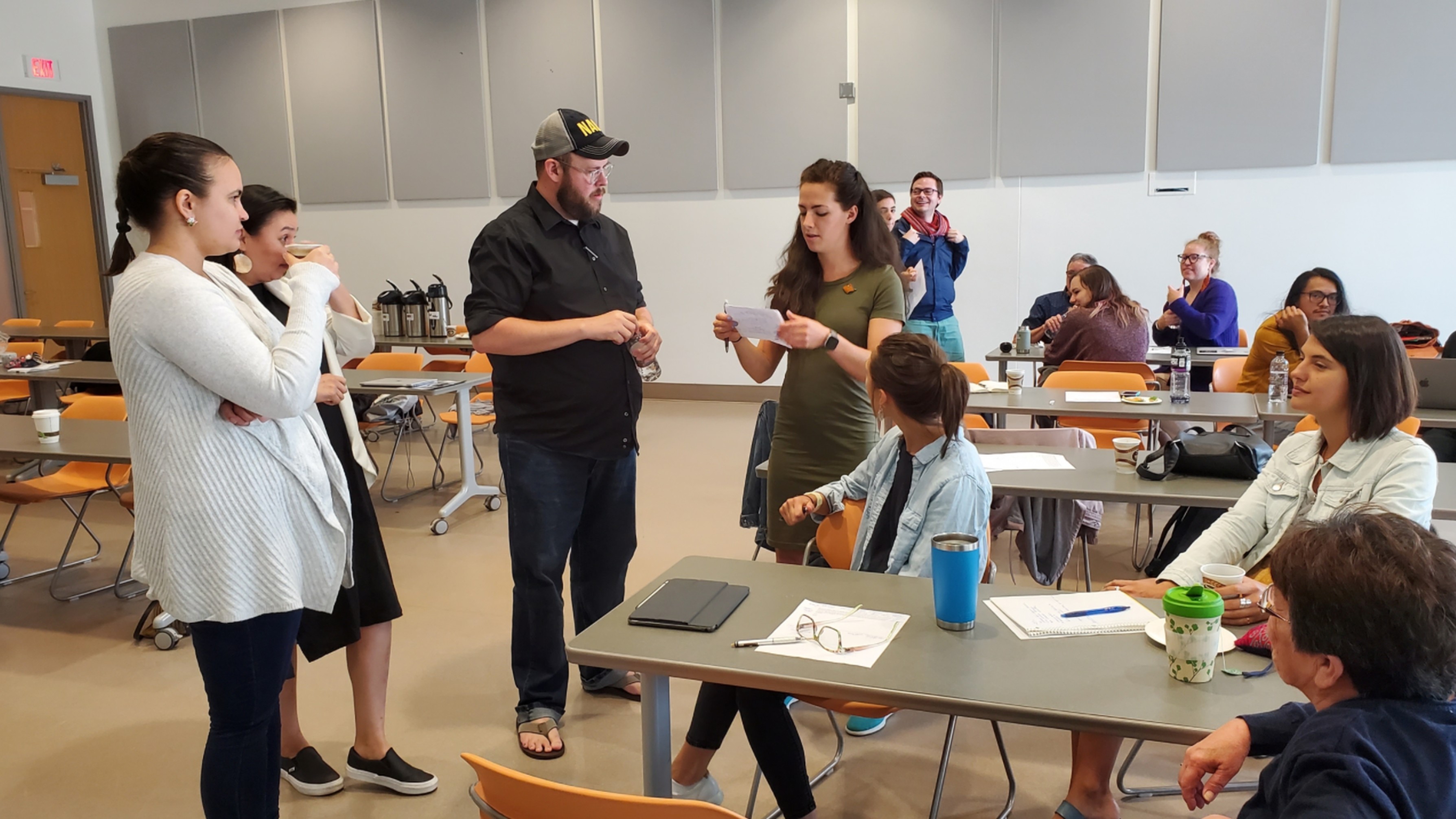My experience in the Summer Internship Program for Indigenous Peoples in Genomics (SING Canada) was an important networking, co-learning, and idea-building experience that I shared with other like-minded Indigenous students, faculty members, scientists, and community members from across North America. As an Anishinaabe Indigenous graduate student living in Alberta, it can feel isolating at times to be one of the few Indigenous students in a predominantly non-Indigenous class setting. I have found that being in the Faculty of Native Studies has been a more grounding experience for me as an Indigenous student. However, many of the Faculty of Native Studies graduate students work outside of science, technology, engineering and mathematics (STEM), Science and Technology Studies (STS) or adjacent programs and research. Having the opportunity to engage with other Indigenous students, professionals and community members working within STEM, STS and related fields is excellent exposure and an invaluable networking opportunity.
For SING Canada 2019, I was a faculty member and organizer. The focus of the 2019 program was Chronic Wasting Disease, an area of research that I have been working in for the past six years. The objective of the SING Canada program and associated SING US and SING Aotearoa is to provide a week-long intensive lab and lecture-based training in genomic sciences for Indigenous students interested in bringing their community-based perspectives to bear on questions and research directions being developed in the genomic sciences. Within the SING Canada program, there is an equal emphasis on critical Indigenous thought regarding these fields' practices, ethics, research directions, lab work, and analysis. During the 2019 program on Chronic Wasting Disease, we broke each day into equal parts lab sequencing and analysis and lectures from our science and Indigenous faculty members. There was also an emphasis placed on career and research mentoring for the students to allow them to speak with Indigenous faculty members about questions and concerns they had professionally. At the end of the week, we held a debrief to discuss their thoughts on the program, what they learned, and what they are taking forward with them into their future studies and careers.
Part of the focus of each SING Canada program is to get students and even faculty members to consider the broader questions of colonial impacts related to genomic sciences and issues related to Indigenous governance and research. Before SING Canada 2019 I had been isolated in my research bubble, so having the time to sit with other Indigenous students and faculty members helped me re-evaluate and reframe some of the questions and thoughts I had been working on in my research. At times in your PhD and master's degree, you can become relatively withdrawn in your readings and research, so having the opportunity to get outside of your work, especially with people who are asking similar questions, can be incredibly invaluable to the research process. Even as a master's or undergraduate student, thinking alongside more senior students can give you the clarity and confidence to keep going.
For future students thinking about the SING Canada program, I would strongly recommend applying, even if you think your research interests or work are not directly related to the year's theme. Having the opportunity to think and engage critically within the sciences from an Indigenous perspective and meeting other Indigenous students entering STEM, STS and related fields can give you the confidence to see yourself in those fields.
Visit the SING Canada website for information on applications.
Support a growing network of Indigenous scientists who are reshaping the landscape of genome research and policy making in North America through their crowdfunding campaign.

About Arlana
Arlana Redsky (Bennett) is a PhD student in the Faculty of Native Studies at the University of Alberta, a member of the Indigenous Science and Technology and Society Studies research and teaching group, and a former faculty member of the Summer Internship for Indigenous Peoples in Genomics (SING Canada). Arlana has received the SSHRC Doctoral Fellowship for her dissertation research on the social, cultural, and political aspects of Chronic Wasting Disease management in Alberta, Canada. Her M.Sc. thesis, written in the Department of Resource Economics and Environmental Sociology at the U of A, focused on expert perceptions regarding cervid (deer, moose, elk, and caribou) management in Alberta. Arlana's current areas of specialization and research include wildlife disease management, conservation, Indigenous and more-than-human kincentric epistemologies and Indigenous feminist critique of posthumanist methodologies.
